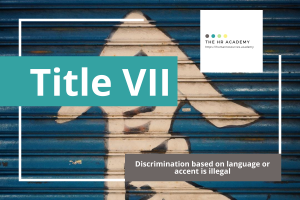
Understanding Language and Accent Issues Under Title VII
Discrimination against someone because of their accent or language issues is illegal under Title VII of the Civil Rights Act of 1964, as amended. Language, accent, and national origin are all connected, and Title VII expressly prohibits discrimination based on national origin.





